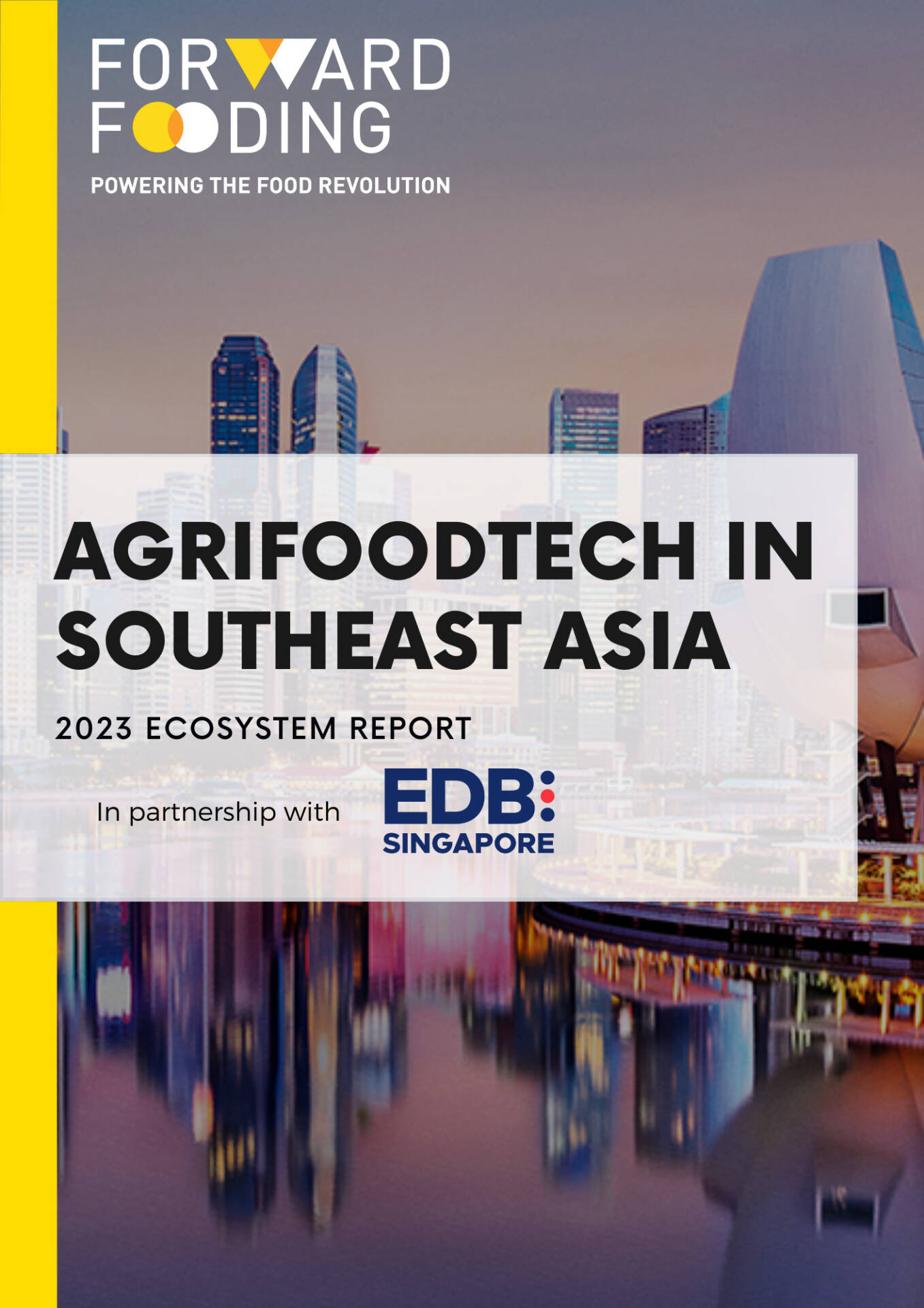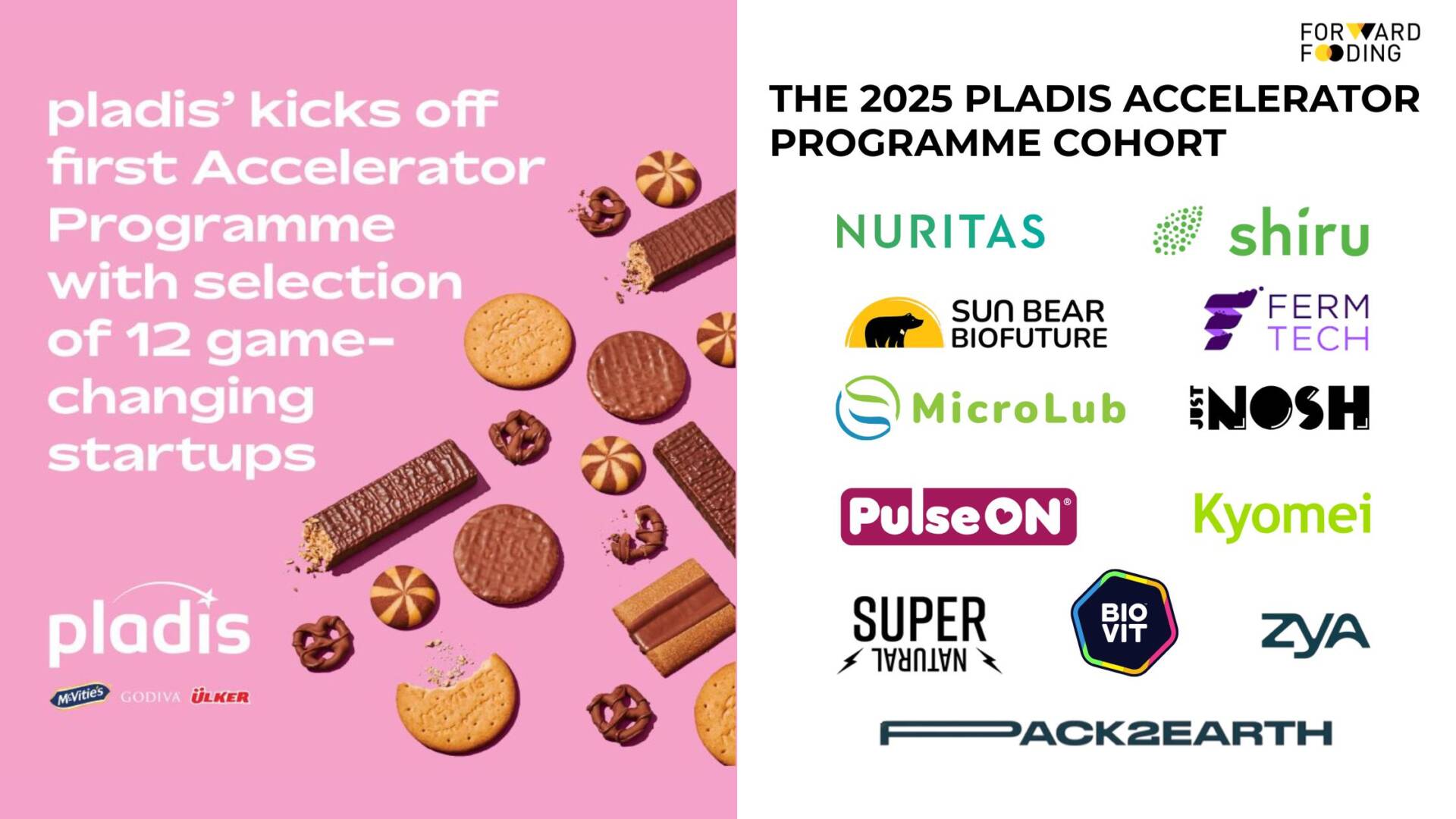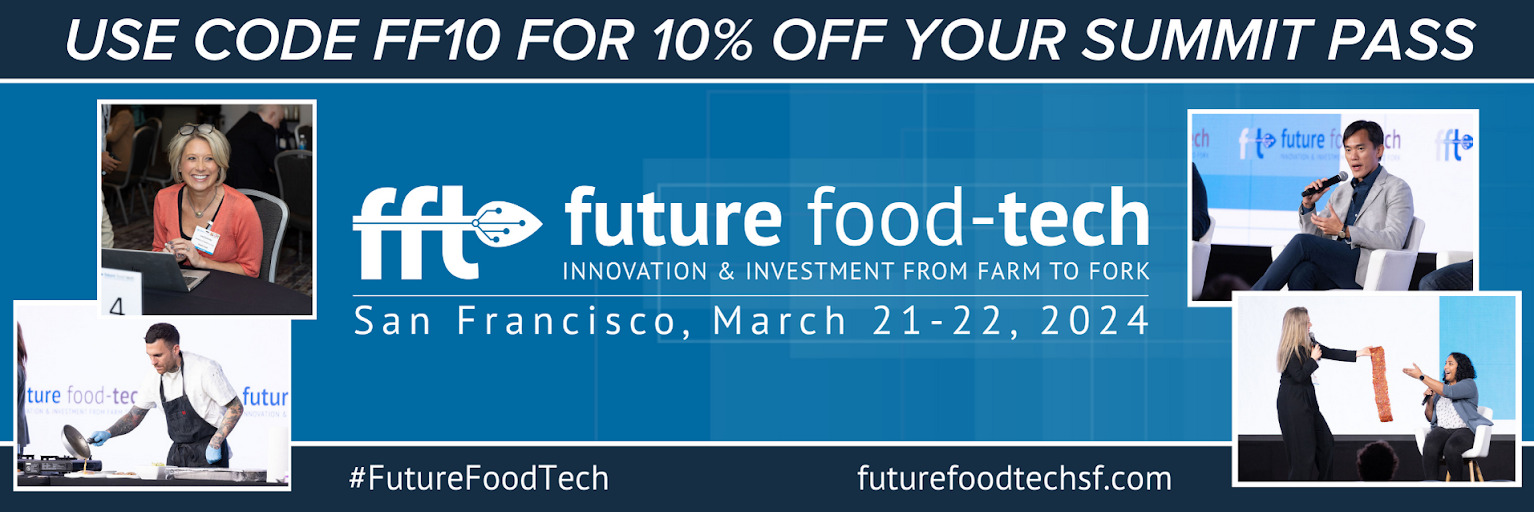FORWARD FOODING
THE BLOG
Kitchen design post COVID-19: 5 key trends for 2020
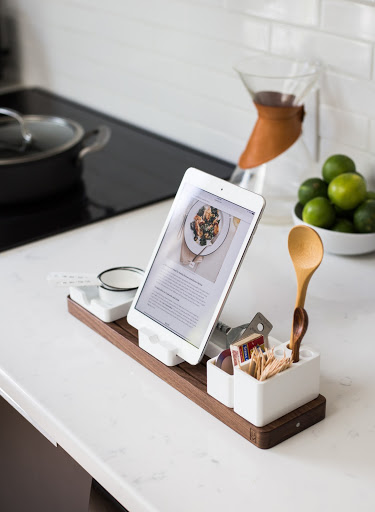
The coronavirus pandemic has changed the way we buy, store and prepare food. Lockdown may now be lifting. But how will these experiences impact our daily life after coronavirus? And what will they mean for the future of kitchen design? Here are our five predictions, plucked out of our FoodTech Data Navigator.
The future of kitchen design
The coronavirus pandemic has changed the way we buy, store and prepare food.
Many former technophobes have finally switched to online shopping. With restaurants closed, we’ve brushed up our cooking skills. Faced with shortages, we’ve learnt how to make the most of our staples and leftovers. And we’ve been baking like crazy to calm our monkey minds.
Lockdown may now be lifting. But how will these experiences impact our daily life after coronavirus? And what will they mean for the future of kitchen design?
Here are our five predictions, plucked out of our FoodTech Data Navigator. Subscribers can click on the links to jump straight to the food tech startup company profiles.
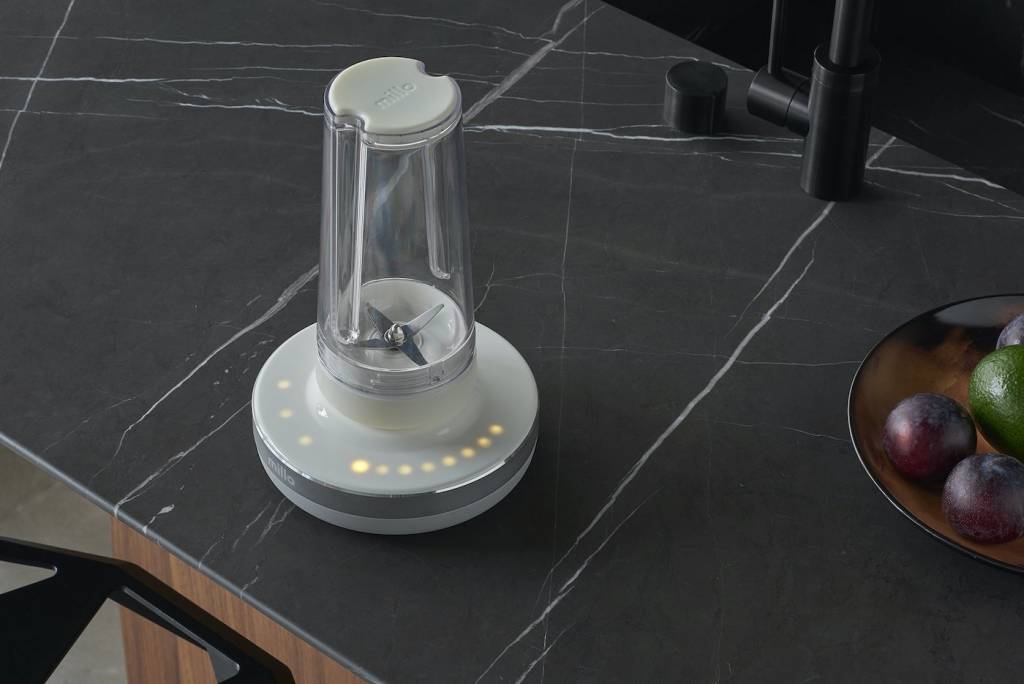
1 – Future kitchen design will use surface space differently
The pandemic has meant that our kitchens have been busier than ever. We’ve faced the dance of the appliances and the battle for the plugs. And avoided noisy devices that disturb the neighbours and wake up the kids. Now we’re craving solutions that maximise kitchen space and offer us a sense of calm amongst the chaos.
Appliance manufacturers like Millo – a FoodTech 500 finalist – are already a step ahead here. Their Magnetic Air Drive kitchen table includes built-in wireless power generators. Consumers can simply place their appliance in the right spot and activate it directly from the countertop.
Did you know that we spoke to Millo founder & CEO Ruslanas Trakšelis? You can read her interview here.
Then Bosch’s PAI projector can help us put this space to good use. Mounted over any work surface, it turns countertops into giant touchscreens. So consumers can be guided through the cooking process without getting their phone or tablet splattered with sauce.

2 – Kitchen design will make it easier to socialise at home
Research has shown that millennials tend to value experiences over products. This doesn’t mean that they’re not interested in tech – quite the opposite. But they want solutions that make it easier for them to enjoy socialising at home. Like that moment when your foodie friends have arrived, but you’ve forgotten to open their favourite bottle.
This is where Aveine’s smart wine aerator might come in handy. Consumers use the app to scan the label and track down the brand in its database. Then this smart device uses an algorithm to inject just the right amount of air bubbles to maximise the flavour. After recently raising €1 million, the company will now be expanding to cover the US and Asian markets.

Or what about when you want to create a healthy, personalised treat for a post-workout brunch? Yogut is a Nespresso-style smart yoghurt machine that makes it easy to whip up some dairy-free, probiotic or prebiotic yoghurt at home. The team are now looking for partners across Europe to further develop their product.
3 – Post-COVID kitchens will be greener
After all those weeks cooped up inside, we’re eager to bring the outdoors, indoors. Our empty larders have left us looking for ways to pep up our staples, leading to a boom in urban farming.
These developments are likely to put in-kitchen hydroponic systems back on consumers’ radars. Prêt à Pousser’s plug-in grow system makes it super simple to enjoy our own vegetables, mushrooms and herbs at home. After bagging €4.3 million at the end of last year, this Parisian startup is now looking to expand across Europe.
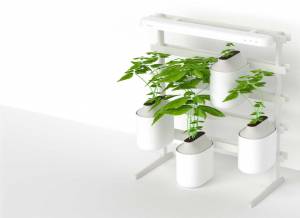
Easy Urban Gardening – a Norwegian startup – has taken a different approach. Their Gaia Grow System is a vertical, soil-less and self-watering hydroponic kit, small enough to fit into any urban kitchen. While California-based Click and Grow allows consumers to grow plants from pre-seeded biodegradable pods, directly from smart pots on their countertop.
4 – Kitchen design will make us more creative cooks
The pandemic has well and truly tested our culinary repertoires. At the same time, consumers are demanding more personalised support. So we predict that software that helps us to find recipes that reflect our specific dietary requirements will become increasingly popular.
Innit and Whisk both offer possible solutions here. Innit provides tailored product and recipe recommendations, based on your personal food profile. While Whisk allows you to save recipes from anywhere online and transform them into a collaborative shopping list.
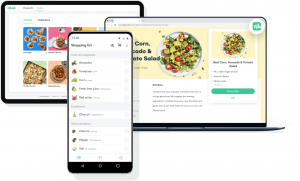
And then, of course, there’s Yummly – an AI powered digital platform that helps to personalise recipe discovery. Since being acquired by Whirlpool three years ago, the company has moved into developing smart solutions that support consumers to cook more effectively. Innovations have included guided cooking and a smart thermometer that helps you prepare the perfect roast.
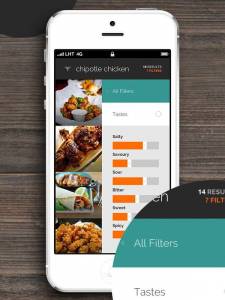
5 – Smart kitchen design solutions will help us waste less
The COVID-19 pandemic has made us think differently about how we manage the food we buy. With fewer shopping trips, we’ve got used to making food stretch further. Luckily, there are plenty of companies innovating in this area.
Silo kitchen, for example, has created a unique vacuum-sealing container system that helps food stay fresher for longer. It comes with a smart tagging and tracking app to help consumers manage their food inventory and automate repurchase.
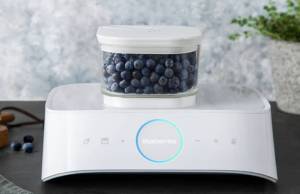
Your budget doesn’t stretch to a smart fridge? Smarter’s FridgeCam is another way of making sure you know what you have in, even when you’re out. Paired with the Smarter App, the device helps consumers use up food that’s due to expire. Smarter claims that these features help households save up to £700 a year by eliminating food waste.
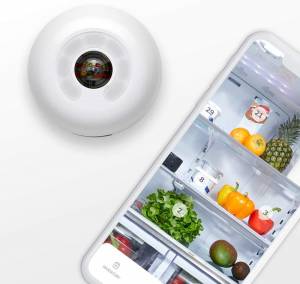
Kitchens of the future: a balance of functional and fun
The coronavirus lockdown has helped us to reconnect with our kitchens. It’s also made us more open to investing in solutions that enable us to enjoy great tasting food at home.
Future kitchen design will need to address our daily pain points. But it’ll also need to offer a genuinely human user experience and make our cooking lives more fun. The companies that crack this will reach out beyond foodies and techies – and increase their chance of going mainstream.
—
The FoodTech Data Navigator is the world’s first AgriFoodTech data intelligence platform. It brings together the latest information about over 6,700 AgriFood Tech actors in one place. By merging multiple sources of data, it provides insight-rich and up-to-date information about most of the international Food Tech players allowing you to discover the most relevant partners for your business and build your own customized data intelligence tool.
–> Want to better understand the full ecosystem? Book a free demo
–> Want your company to be featured? Apply here
Follow us
Sponsored Articles
9 July 2025
Forward Fooding celebrates the selection of 12 pioneering startups for the inaugural pladis Accelerator Programme. From water lily popcorn to sugar-converting enzymes, these innovations represent the future of snacking, addressing obesity, sustainability, and personalized nutrition through cutting-edge food technology.
21 March 2025
Tim Ingmire, VP of Global Innovation & Technology at pladis, discusses how the snacking giant is supporting early-stage startups in foodtech, health, and sustainability through their accelerator program. Learn about their focus on personalized nutrition, functional foods, and future ingredients to bring innovative, delicious products to consumers worldwide.
8 February 2024
Future Food-Tech returns to San Francisco on March 21-22 Over 1,700 food-tech leaders, from CPG brands, retailers, ingredient providers, [...]
1 February 2023
The 4th edition of FoodTech 500 is taking off and we are excited to partner with NEOM for the third consecutive year to support the best international AgriFoodTech entrepreneurs.
10 February 2022
One of the elements we enjoy the most here at Forward Fooding about working with AgriFoodTech startups is being [...]
